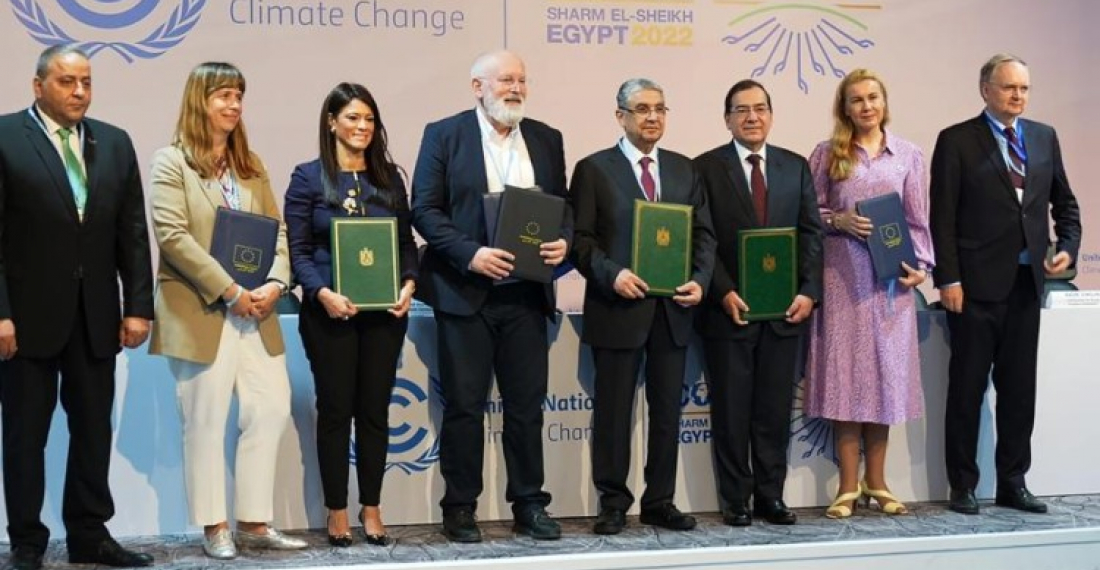The European Union and Egypt have taken a further step to boost their long-term cooperation on the clean energy transition by establishing a strategic partnership on renewable hydrogen and preparing the ground for a just energy transition in Egypt. Executive Vice-President for the European Green Deal Frans Timmermans signed a bilateral Memorandum of Understanding with Egypt's Minister for Petroleum Tarek El Molla and Minister for Electricity and Renewable Energy Mohammed Shaker El-Markabi at COP27 in Sharm El-Sheikh.
The "strategic partnership" does not yet contain binding commitments, but both sides expressed in the memorandum that they see a "key contributor" for hydrogen made with electricity from renewable sources to reduce emissions and ensure energy security. The clean energy source will become increasingly significant in the coming years for European industry, sustainable economic growth and job creation, which needs to become more sustainable.
Hydrogen can replace fossil fuels such as natural gas in many processes. The EU said it is also crucial to reduce Europe's dependence on Russian fossil fuels. The latter simultaneously pledged an investment of up to €35 grant for this initiative to the EBRD under the EU's Economic and Investment Plan for the Southern Neighbourhood.






